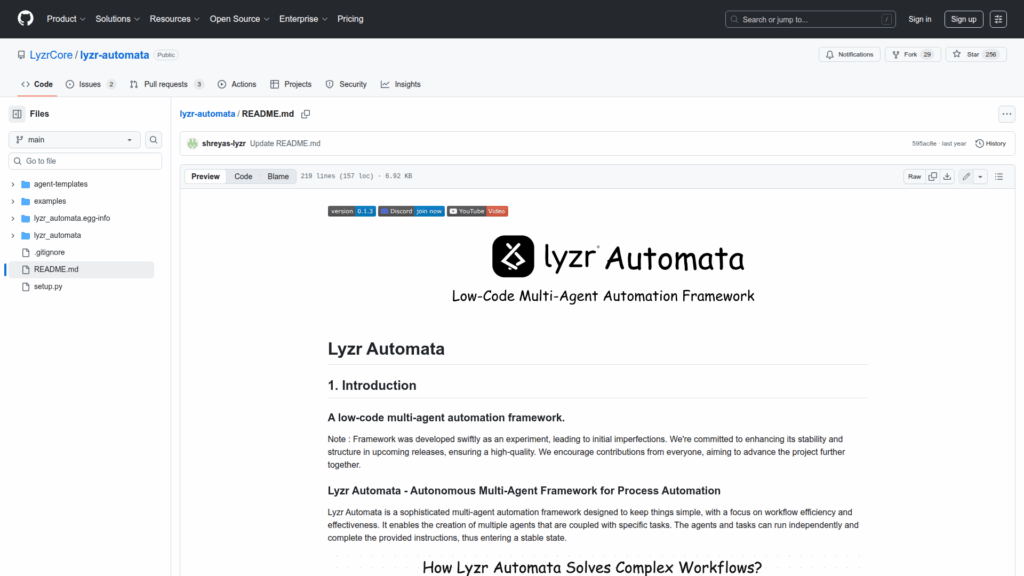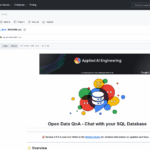lyzr-automata
Basic Information
Lyzr Automata is a low-code multi-agent automation framework designed for developers to build and orchestrate autonomous agents for process automation. It provides fundamental building blocks—Models, Agents, Tools, Tasks, and Pipelines—so teams can wire language models and external functions into directed workflows. The framework supports prebuilt model adapters for OpenAI and Perplexity and lets users extend a base AIModel class to add other models. Agents are defined with role, persona and memory to guide model behavior. Tools connect agents to external APIs or functions and can be created with Pydantic input/output models. Pipelines run tasks in ordered flows, currently supporting linear sync and async pipelines. The project is described as experimental and actively accepting contributions and improvements. Installation is available via pip install lyzr-automata.








